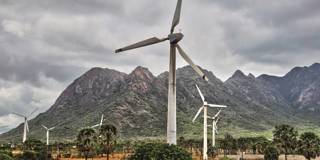Although multilateral efforts to address climate change are not well served by deepening geopolitical rivalries or the apparent trend toward global economic fragmentation, that doesn’t mean governments have abandoned the pursuit of net-zero emissions. Instead, the process has become more competitive – and more complex.
Since founding the Eurasia Group, a geopolitical risk advisory firm, more than 25 years ago, political scientist Ian Bremmer has had the ears of political and business leaders around the world, as well as a front-row seat at major multilateral policy conferences. As the author, most recently, of The Power of Crisis: How Three Threats – and Our Response – Will Change the World, he discusses the complexities of pursuing international cooperation and decarbonization in an age of superpower rivalries, geopolitical realignment, and new zero-sum security concerns.

Since founding the Eurasia Group, a geopolitical risk advisory firm, more than 25 years ago, political scientist Ian Bremmer has had the ears of political and business leaders around the world, as well as a front-row seat at major multilateral policy conferences. As the author, most recently, of The Power of Crisis: How Three Threats – and Our Response – Will Change the World, he discusses the complexities of pursuing international cooperation and decarbonization in an age of superpower rivalries, geopolitical realignment, and new zero-sum security concerns.